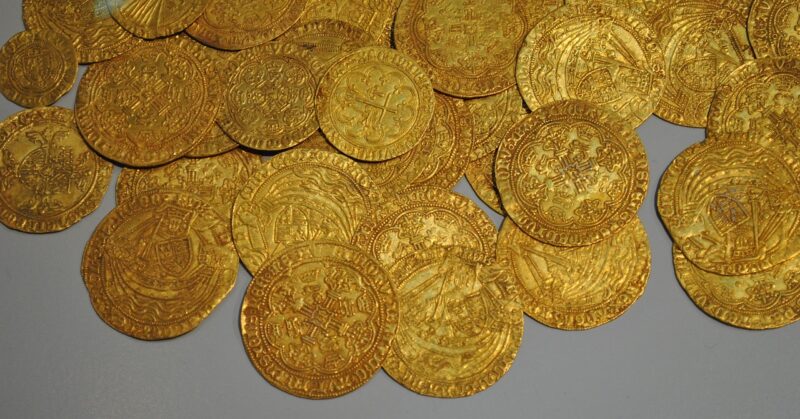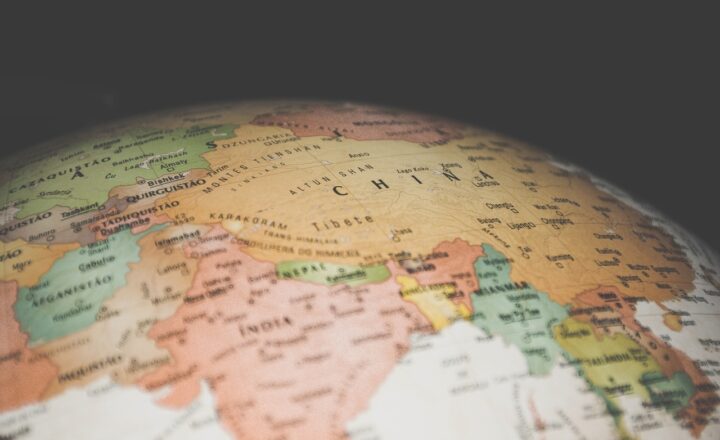How Entire Kingdoms Rose and Fell Due to the Control of Precious Metals and Natural Resources
November 17, 2024

Throughout history, the control of precious metals and natural resources has played a pivotal role in shaping the fates of kingdoms and empires. From the gold that fueled the coffers of various ancient civilizations to the strategic importance of natural resources like oil and timber in the modern era, the wealth derived from these materials has often determined the rise and fall of nations. In this article, we will delve into several historical case studies where the control of these assets proved to be a double-edged sword, influencing the sovereignty and longevity of empires.
1. The Gold of Ancient Egypt
Located along the banks of the Nile, Ancient Egypt was one of the earliest civilizations to leverage the wealth of precious metals. Gold, in particular, became a symbol of power, often associated with the gods and immortalized in burial rituals and tomb treasures. The discovery and mining of gold led to immense wealth, enabling the Pharaohs to build monuments that have survived millennia.
But the golden age of Egypt eventually turned to turmoil. The wealth generated by gold mining and trade attracted invaders. The lure of riches led to foreign conquerors, such as the Assyrians and Persians, attempting to seize control, underscoring how the emphasis on a resource could lead to vulnerability. The extravagance of wealth also caused infighting among the elite, leading to civil strife.
2. The Spanish Conquest and Silver Mining in the Americas
In the 16th century, Spain became the first global empire, largely due to its control of vast silver mines in the Americas, particularly in Potosí (present-day Bolivia). The influx of silver allowed Spain to dominate European politics and finance for over a century. They financed wars, established colonies, and enriched the crown.
However, Spain’s reliance on silver created significant problems. The flooding of silver into the European economy led to hyperinflation, undermining the purchasing power of citizens. Over time, Spain’s wealth became a trap; as they exhausted the mines and warfare depleted their resources, the empire fell into decline. By the 17th century, the once-powerful Spanish Empire was struggling with economic instability, demonstrating how wealth can be both a blessing and a curse.
3. The Ottoman Empire and the Control of Silk and Spices
The Ottoman Empire thrived between the 14th and 20th centuries, controlling key trade routes between Europe and Asia. Their monopoly over silk, spices, and precious metals fostered incredible wealth. The Ottomans became cultural and political powerhouses, significantly influencing art, architecture, and science in their territories.
However, the empire’s reliance on these commodities left it vulnerable to change. The discovery of sea routes to Asia by European powers during the Age of Exploration altered trade dynamics. As direct ocean routes bypassed Ottoman territory, their control over these lucrative trade goods diminished. The financial strain precipitated internal conflicts and eventual fragmentation, highlighting how the reliance on specific resources can lead to vulnerability in the face of changes in global trade.
4. The British Empire and the Resource Curse
The British Empire, at its height, was the largest empire in history, facilitated by its control over vast amounts of resources across the globe—including precious metals, timber, and agricultural products. The wealth derived from colonies fueled industrialization, turning Great Britain into the world’s first industrialized nation. The colonization of various regions was often justified by the need to access their resources.
However, the empire’s over-reliance on resource exploitation led to ethical and social issues, culminating in demands for independence from colonized nations. The resource curse, where resource-rich countries experience less economic growth and worse development outcomes than countries with fewer natural resources, became evident in the aftermath as former colonies struggled post-independence. The British Empire’s decline in the 20th century serves as a reminder of how the focus on extricating resources can have far-reaching consequences.
5. The Modern Energy Wars: Oil and Conflicts
In the contemporary world, oil has often been termed “black gold” due to its critical importance in global economics and politics. The Middle East, rich in oil resources, has been at the center of geopolitical strategies and conflicts. Control over oil reserves has been a critical factor in major conflicts, including the Gulf War and the ongoing Syrian civil war.
Countries rich in oil have often used their resources to gain influence but have also become targets of invasion or economic sanctions. The constant struggle for oil control has sparked regional instability, raising questions about whether resource wealth is a boon or a bane for nations in the region. Oil, while a driver of economic success for some, has also brought suffering, showcasing the complexities of wealth derived from natural resources.
Conclusion
The history of kingdoms and empires is deeply intertwined with the control of precious metals and natural resources. While these materials can provide immense wealth and power, they also hold the potential to create vulnerability and conflict. From ancient civilizations to modern states, the patterns remain consistent: the lure of wealth can lead to prosperity, but can also precipitate downfall.
As we analyze current global dynamics, the lessons from the past spotlight the duality of resource control—how it can uplift a nation while simultaneously threatening its stability. In an ever-changing world, the balance of resource management will continue to shape the ambitions and fates of nations for centuries to come.







